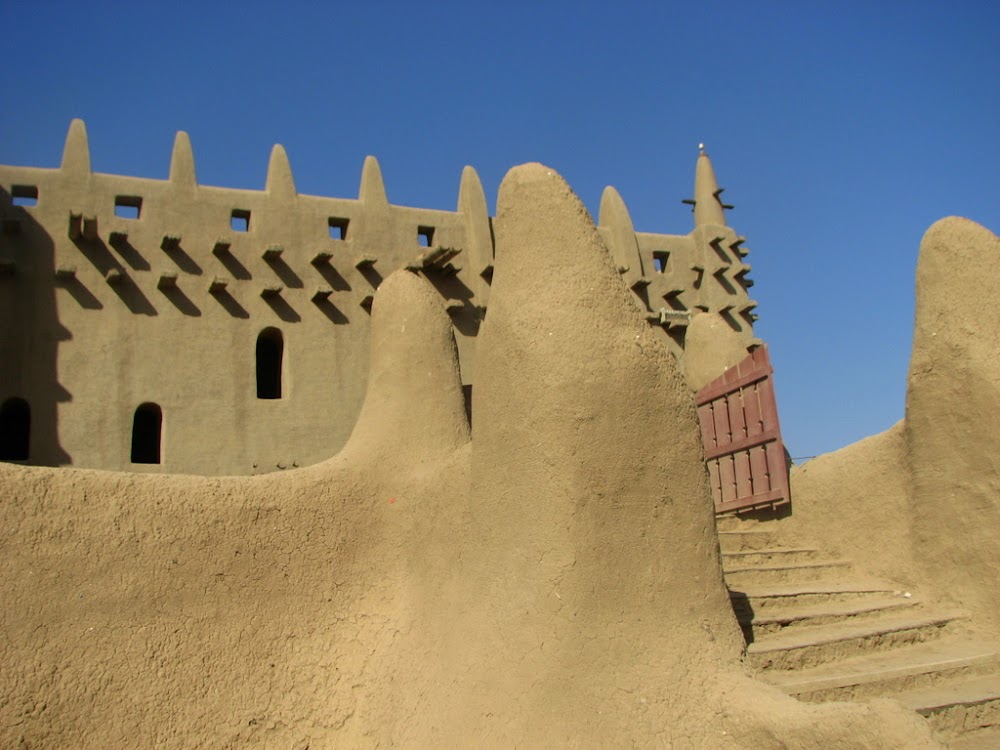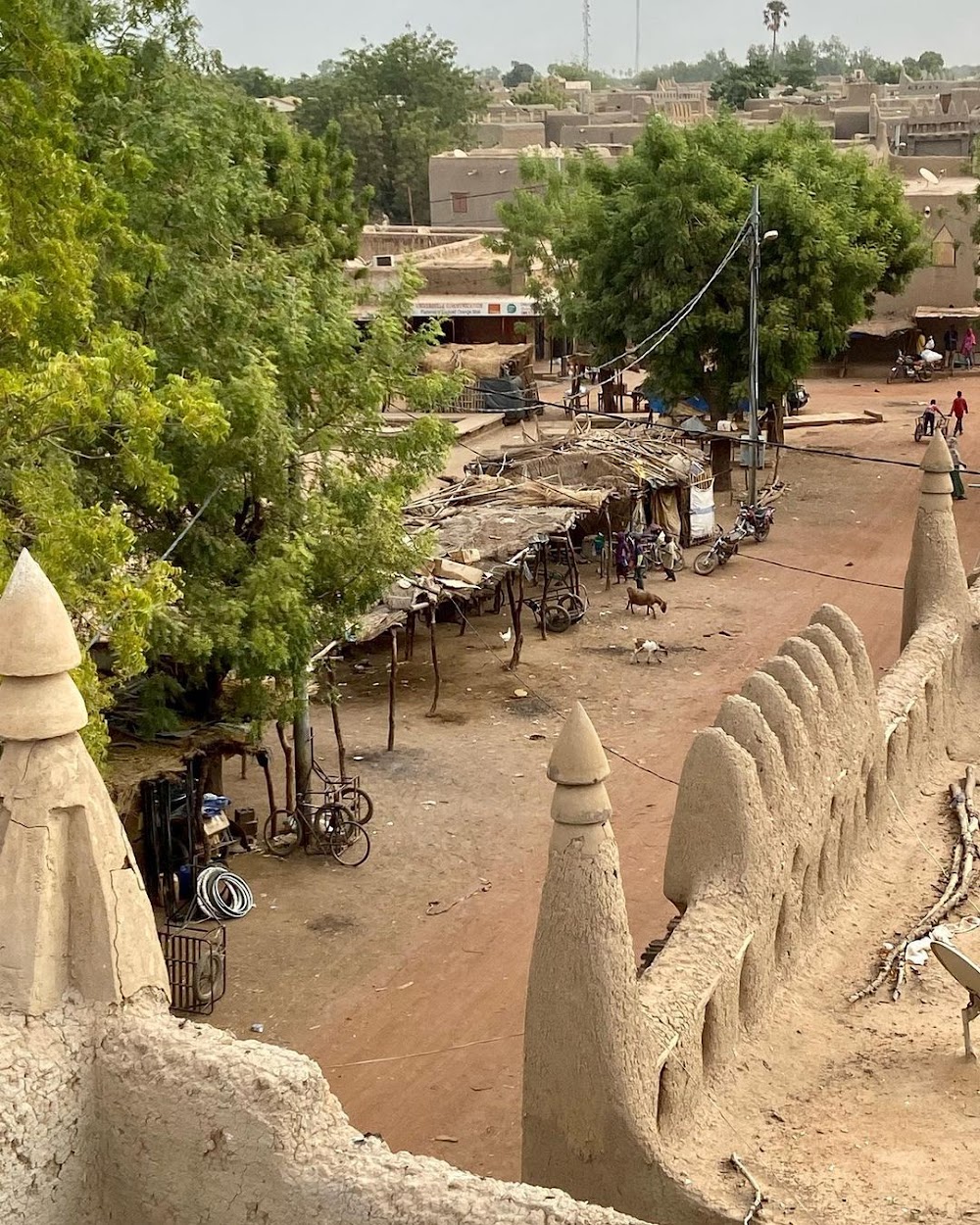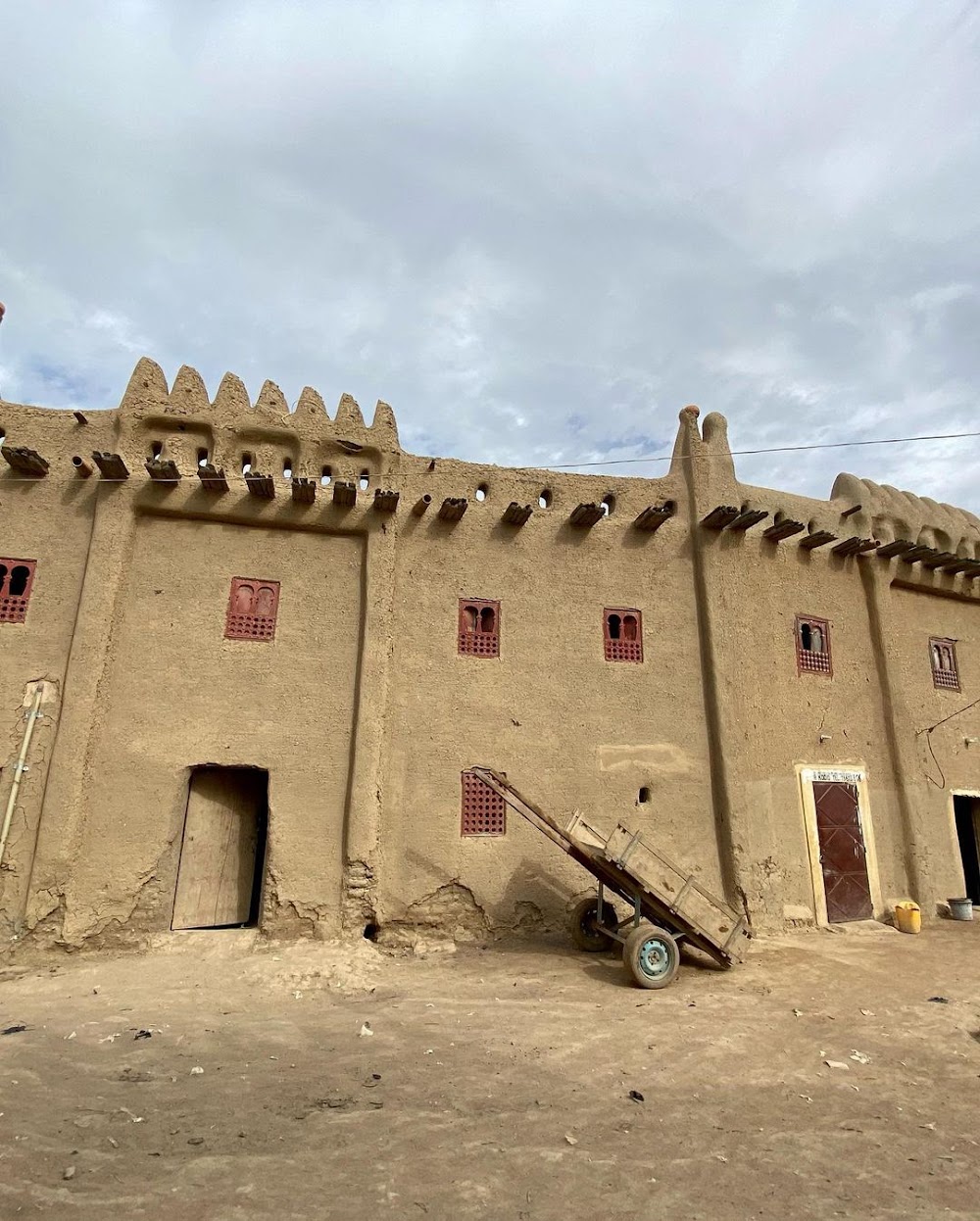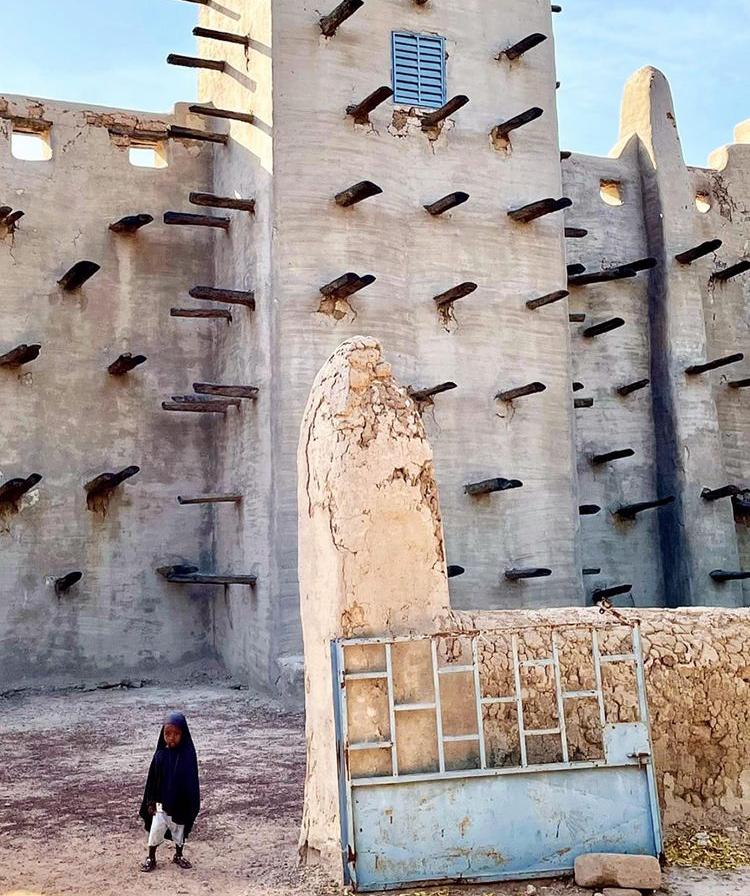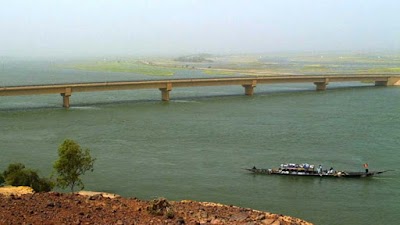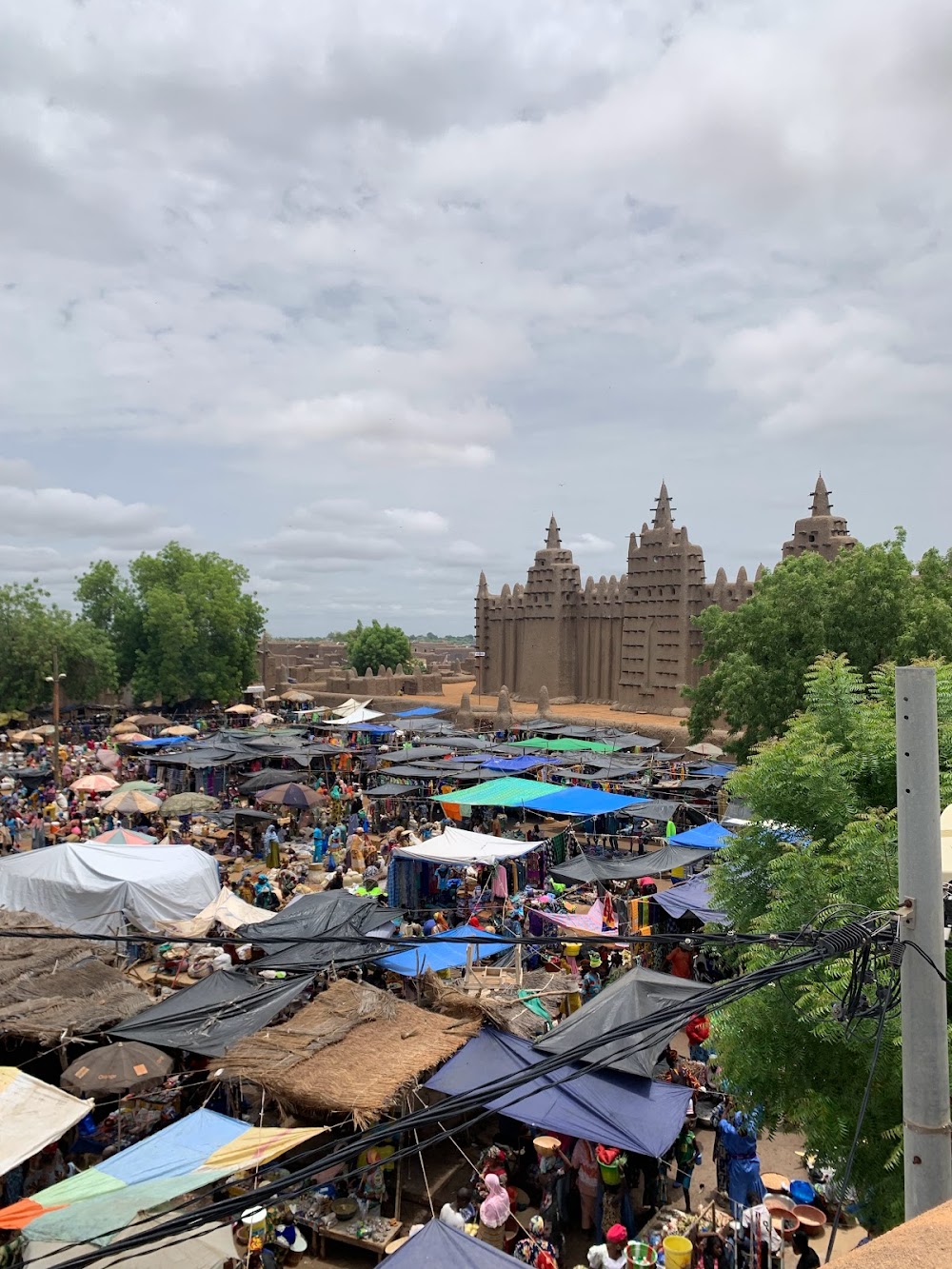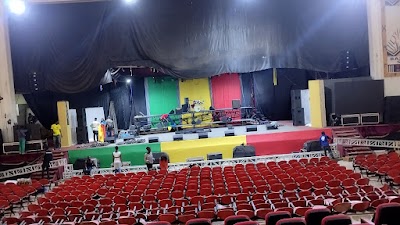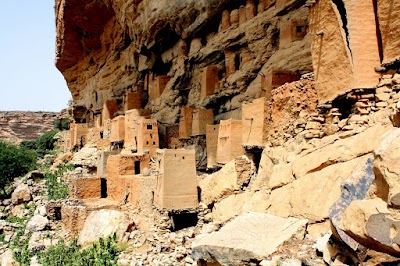Djenné Old Town (Vieux Ville de Djenné)
Overview
Discover Djenne: A Jewel of Mali's Cultural Heritage
Nestled in the Koulikoro Region of Mali, Djenne, also known as Djenné Old Town, is a historic city that captivates visitors with its unique mud-brick architecture. This remarkable city has been a symbol of Mali’s rich cultural heritage for centuries, preserving its allure and charm through time.
Djenne’s journey began as a small fishing village around 250 B.C. Over the centuries, it blossomed into a major trading hub, thanks to its strategic location near the Niger River and the Bani River. This prime positioning allowed traders to connect with distant regions, including the famous Timbuktu, facilitating the exchange of valuable goods such as gold, salt, dates, and ivory.
The Great Mosque of Djenné: A Marvel of Mud Architecture
One of the most iconic landmarks of Djenné is the Great Mosque, also known as the Djenné Mosque. This stunning structure is not only a place of worship but also a testament to the ingenuity and craftsmanship of local builders. Constructed in 1907, it stands on the site of an earlier mosque believed to have been built around the 13th century. The mosque exemplifies Sahelian architecture, crafted from sun-baked mud bricks called "ferobes," which are reinforced with plant materials like straw and rice husks.
Inhabitants of Djenné continue to employ traditional building techniques, ensuring that their homes are well-equipped for the region's climate. Thick walls provide insulation against the scorching daytime heat and cooler nighttime temperatures. Each year, the community gathers for the "crépissage," a festival where they re-coat the Great Mosque with fresh mud. This annual event not only maintains the mosque's structural integrity but also fosters a strong sense of communal responsibility and cultural identity.
Wandering Through Djenné's Timeless Streets
Exploring Djenné is like stepping back in time, with a labyrinth of narrow streets lined with mud-brick buildings that exude the charm of ancient times. These historic streets have remained largely unchanged, preserving the city’s authentic atmosphere. Many buildings feature raised platforms at their entrances to protect against water damage during the rainy season, while intricate wooden doors and window frames showcase designs that have been passed down through generations.
Another highlight of Djenné is its vibrant market square, a bustling center where traders from diverse backgrounds converge every Monday to sell their wares. The market is a colorful spectacle, filled with vibrant fabrics, fresh produce, handcrafted items, and a delightful array of spices. More than just an economic hub, the market serves as a gathering place for locals to socialize and share news, reinforcing the community’s bonds.
Sustainability and Heritage Preservation
The architecture and lifestyle of Djenné are rooted in sustainability. The use of locally sourced materials and traditional construction methods significantly reduces environmental impact. Moreover, community involvement in maintaining their structures ensures that essential knowledge and skills for preserving their heritage are handed down to future generations.
Djenne Old Town, with its rich history, stunning architecture, and vibrant culture, stands as a living museum. The dedication of its people to preserving their heritage has not only earned it UNESCO World Heritage status but also highlights the resilience and depth of Mali’s cultural narrative.
Whether you’re drawn by its captivating history or the warmth of its community, Djenne promises an enriching experience that lingers long after your visit.


